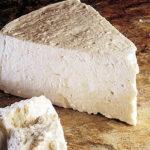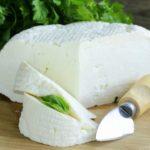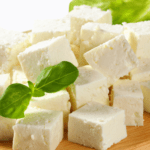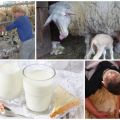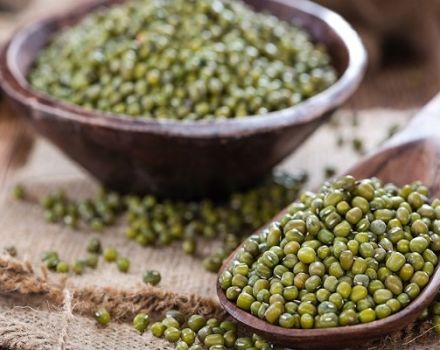Top 4 types and names of sheep's milk cheeses, benefits and harms to the body
The ancient Romans learned how to make sheep's cheese, since then this valuable product has become an irreplaceable part of the Mediterranean diet. It is considered a delicacy, suitable for self-consumption and cooking. The production of cheese from sheep's milk is widespread in the mountainous regions of the Mediterranean countries, in Western Asia and in the Middle East, where sheep breeding is developed.
Composition and calorie content
Cheese is made from sheep's milk, to which enzymes and lactic acid bacteria are added for the coagulation process. In some industries, milk is melted by adding salt. Nutritional value of 100 g:
- 15 g protein;
- 8 g carbohydrates;
- 28 g of fat.
Calorie content - 350 kcal per 100 g. Despite the large number of calories, the sheep product is considered a dietary one, suitable for those who practice healthy eating and a raw diet.
Sheep cheese contains a lot of nutrients that support the tone of the body, helping to maintain youth, health and good emotional state:
- vitamins - ascorbic acid (vitamin C), retinol (A), calciferol (D), tocopherol (E), riboflavin (B2), folic acid (B9), cobalamin (B12);
- mineral elements - potassium, calcium, phosphorus, zinc, magnesium, iron, sulfur;
- linoleic acid, which supports metabolic reactions.

In sheep milk, the concentration of ascorbic acid is 3 times, and iron is 2 times more than in cow's milk. The content of potassium, calcium and phosphorus is also high. Fats and proteins, which form the basis of dairy products, are easily absorbed by the body.
Types and names of sheep cheese
Sheep milk is used to prepare hard and soft grades of rennet cheese with different fat content and the addition of flavoring ingredients, as well as whey and brine products.
Hard cheeses
Sheep milk is most often used to create the classic Mediterranean product - hard cheese. Its main suppliers are Spain and Italy. The most common Italian sheep's cheese is pecorino (from the Italian “pekora” - “sheep”). It was produced by the ancient Romans. The peculiarity of the species is the graininess of the structure, which increases as the product matures. Pecorino varieties are produced in different regions of Italy:
- Romano is the variety most common outside Italy, exported to various countries since the 19th century.For production, milk from Sardinian and Tuscan sheep is used. The color is light straw, the consistency is dense, with small holes and a spicy salty taste. Ripens in 10-12 months.
- Sardo is a Sardinian variety with more richness and piquancy of taste, but less salty. It can be soft, ripening in 30-60 days, and hard, ripening longer.
- Toscano is a Tuscan variety with mild taste and intense aroma, covered with a red or black crust. It can be soft, ripening in 20 days, and semi-hard, requiring 5-6 months to be ready.
- Siciliano is a Sicilian cheese that matures for at least 4 months according to the old method in wicker boxes, therefore it has an uneven crust. The taste is spicy with fruity notes.
Also popular in Italy is Fiore Sardo (from Italian - "Sardinian flower"), made exclusively from the milk of Sardinian sheep that consume natural food without additives. The cheese mass is immersed in brine for several hours, smoked for 2 weeks, and finally treated with a mixture of salt, olive oil and vinegar. Another Italian cheese is Medoro, which has a rich taste with a slight pungency.
In Spain, there are many mountainous areas where sheep breeding and the production of quality cheese are developed. The most popular varieties are:
- Zamorano is a Castilian cheese aged in olive oil. It matures for 6 months, has a textured crust and a salty-sour taste.
- Manchego is a light yellow Castilian product. It can be semi-hard, tender, ripening in 3-4 months, and hard, up to a year old, with a rich taste.
- Roncal is a variety from Navarra with a brown crust and a slight piquancy on the palate. It matures for 4 months.
- Idiasabal is a product made in the Basque region. The taste is light, with a pleasant piquancy. There are smoked varieties.
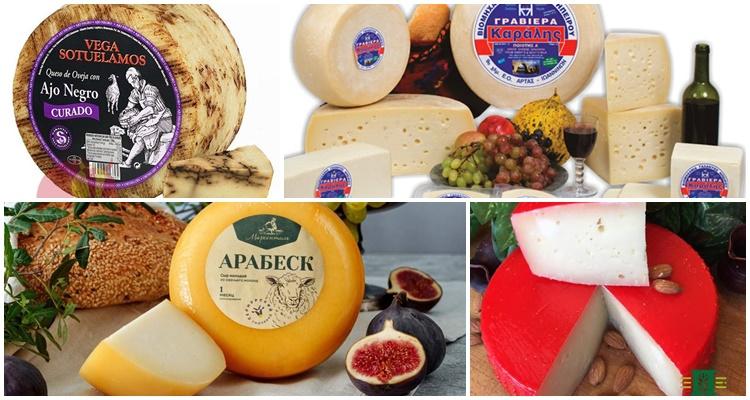
Soft cheeses
Soft sheep's cheese comes in the following varieties:
- Caciotta is an Italian capitate product, divided into several varieties according to the ripening rate: from 5 days to 3 months. The structure is dense, there are no holes. Tastes are different: from soft creamy to savory. The composition often includes flavorings.
- Serra da Estrela is a limited edition Portuguese cheese. Reaches maturity in a month, acquires a soft and dense structure.
- Roquefort is the most famous French variety with a semi-soft consistency. For cooking, only lacon sheep's milk is used. Spores of noble penicillin mold of blue color are added to the ripening cheese mass with a syringe. The product matures in the limestone grottoes of the southern province of Rouergue on oak shelves. It has a soft crumbling structure, a smooth and moist crust, a rich taste with pleasant spice and nutty notes.
Pickle
Sheep brine cheese ripens in brine, has no crust. Fat content - 40-45%. The product is in demand in Mediterranean countries and Eastern Europe.
Popular varieties:
- Feta is a Greek cheese made from goat and sheep milk. The consistency is dense, creamy. Easily cut into squares for serving. The taste is spicy, salty.
- Motal is an Armenian and Azerbaijani product with the inclusion of thyme. The consistency is soft, maturing takes place in leather wineskins.
- Halloumi is a Cypriot product made from goat and sheep milk. It melts tight, so it can be fried. The taste is salty, mint is often used as a flavoring additive.
- Cheese is the most widespread sheep product in Eastern European countries. Similar to feta, but denser, sourish, less fatty.
Whey
After making hard and soft cheese, whey remains, which contains the protein albumin. It is used to prepare whey products.
The following whey varieties are available:
- Ricotta made from unsalted whey of several types of milk.Cheesy consistency, high protein concentration.
- Broccio is a creamy Corsican product with a spicy sweet taste and an intense creamy aroma. Milk is added during cooking (up to 25% by volume). Maturity occurs after 2 days, but many months of ripening is possible.
- Vourda - Balkan and Carpathian cheese. Milk is added to the whey (up to 20% by volume).
Useful properties of the product
Sheep cheese has a positive effect on the functioning of the human body, with regular inclusion in the diet:
- normalizes digestion;
- maintains normal blood sugar levels;
- stimulates metabolism;
- helps to lose weight faster;
- supports the work of the organs of vision;
- tones up the body, fills with energy;
- prevents the formation of malignant tumors;
- reduces the likelihood of developing atherosclerosis.
For women
With regular use, sheep's cheese prolongs youth, strengthens hair follicles and nails. It is recommended to use dairy products for pregnant women to replenish the calcium deficiency taken from the mother's body by the embryo. This will help prevent hair loss and tooth loss. Folic acid in the composition of the product is necessary for the full development of the fetal nervous system.
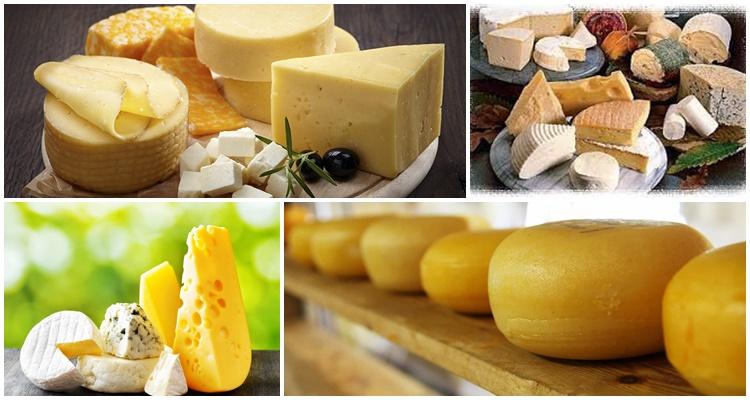
For men
This nutritious dairy product is recommended for men doing strenuous physical work. Its benefits lie in strengthening the muscles and skeleton, eliminating joint pain, filling the body with energy to overcome stress.
For kids
Sheep cheese can be given to children over 3 years of age as a rich source of calcium and other minerals necessary for the full development of the child's skeleton and preventing rickets. The daily portion at this age is 15-20 g. Before the indicated age, the child should not eat cheese, since the product saturated with proteins and minerals overloads the kidneys of the child. Products with mold and spicy flavors, as well as smoked, are not given to children under 7 years old. You should not treat your child to salty and fatty dairy products.

Possible harm and contraindications
Sheep cheese should not be included in the diet when:
- peptic ulcer, gastritis, colitis, other acute pathologies of the digestive tract;
- renal failure;
- hypertension, disruption of the heart and vascular system;
- swelling caused by heart and kidney problems.
Excessive consumption of cheese disrupts the work of the stomach and heart, exacerbates chronic diseases of the digestive system, and extra pounds appear.
Sheep cheese is rich in minerals, salts, fats. These substances, when excessively ingested, cause serious functional disorders.
In the presence of pathologies of the heart, blood vessels, urinary and digestive systems, before including dairy products in the diet, you should consult with a nutritionist and your doctor.

What do they eat with and how to store it?
Sheep cheese is widely used in cooking. It is used as an ingredient in cold appetizers and hot dishes of Eastern European, Middle Eastern and Mediterranean cuisines: vegetable salads, sandwiches, rolls, soups, pasta, pizza. It is added to sauces, baked goods, and pastries. Sheep's milk cheese is an excellent independent snack for dry wines, especially if it is supplemented with fruits, nuts, dried fruits, and natural honey.
Sheep cheese is stored on the refrigerator shelf for no more than 3 months. For storage, it is wrapped in parchment to prevent drying out. The brine product is kept in a plastic container, filled with brine.It is permissible to store wrapped in foil, but no longer than 5 days. There are many varieties of sheep cheese, everyone can choose according to their taste preferences. When consumed in moderation, the product benefits both adults and children.






